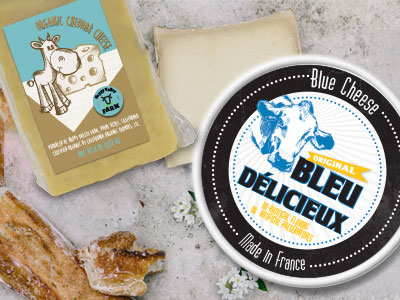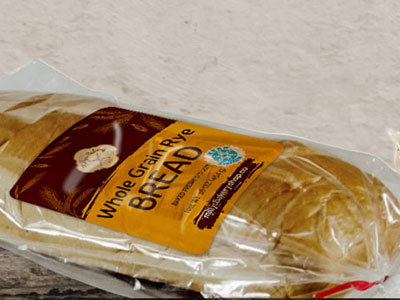The fast pace of life makes preparing traditional meals at home and eating healthily more difficult than before. Food producers are quick to respond to the growing demand for instant food and the need for having meals on the run, so today we have a variety of food products to accommodate modern eating habits. For example, deli shops have been around for a while and are very popular venues for busy people.Whether it’s a sit-down place similar to a diner, or a small shop with self-service food stands where people can buy their lunch for the day and go, they’ll find what they need among prepared macaroni and potato salads, veggie dishes, cured meats and sausages, sandwiches made to order, soups, etc. There is also a deli product section in supermarkets where consumers can buy food for the upcoming week and not worry about cooking.
Consumers usually choose food products based on different factors such as habit, recommendation, familiarity with the brand, the company’s marketing efforts and information on food labels. The last item on the list is particularly important, because labels not only inform buyers about a product’s nutritional value, but also about many different food elements that give hints about the product’s safety. One of the most obvious examples of that is the “best before” date on the label. This info will show how fresh a product is.
New Labeling Regulations for Restaurants and Similar Food Venues
The Food and Drug Administration is in charge of regulating food labeling in the US, and currently they are revising a document from 2008 titled Guidance for Industry: A Labeling Guide for Restaurants and Other Retail Establishments Selling Away-From-Home-Foods. According to new regulations, many restaurants and similar food venues will need to provide information about their food products on menus or menu boards. Some types of food that will require nutrition and calorie labeling on menus are:
- meals at sit-down restaurants and drive-through windows
- self-serve food at a salad bar or hot-food bar
- self-serve food at a grocery store
- muffins and similar pastries at bakeries and coffee shops
- ice cream from an ice cream store
- pizzas from take-out venues, etc.
In line with that, if your deli shop is displaying self-service food such as sandwiches, salads, bagels, donuts, and similar, those products will need to contain labels or signs adjacent to each food product or provided at the counter at the request of the customer.
However, not all restaurants and similar food venues will need to provide nutrition and calorie labeling. According to the FDA, this regulation is only for a “restaurant or similar retail food establishment that is part of a chain with 20 or more locations, doing business under the same name, and offering for sale substantially the same menu items.” Also, it is only for food product that will be consumed at the premises, or soon after leaving the venue.
Deli Product Labeling: Mandatory and Voluntary
Basic rules for mandatory deli labeling:
- Products that you do need to label strictly adhering to new FDA regulations for restaurants are those products that you pre-portion, package and display on a self-service counter, such as sliced meat, cheese, sandwiches, soups, salads, etc.
- If your store sells products that are not typically considered deli food, such as packaged ground or chopped products, they’ll need to conform to required nutrition labeling.
Deli foods not covered by the new restaurant regulations are:
- Foods typically intended for more than one person, to take home
- Foods that require additional preparation (pounds of deli meat, large deli salads, etc.)
- Foods that are not standard items in the store (daily specials, custom orders, self-service food offered for less than 60 days per calendar year, etc.)
Choose Custom or Blank Deli Labels
In order to give your customers the best service, you may chose to label the displayed deli products that don’t require labeling. For example, you can choose to include sandwich labels, soup labels, salad labels, cheese labels, etc. adjacent to your products. This way people who enter your shop can easily identify the types of meal (e.g. “Potato salad”, “Cured ham”), be informed about an item’s price per pound, and about certain ingredients that could be harmful to them (e.g. “Contains gluten,” “Contains nuts”). If you need to or chose to inform your customers about the food’s nutrition facts, they need to be accurate.
Examples of deli tags that you may need: asparagus stir fry, chilli mix, bacon and cheddar, cole slaw, chicken salad, product contains nuts, product contains gluten, etc.
Deli tags also serve the purpose of keeping deli cases and counters organized and neat, which reflects the venue owner’s professionality and respect for the customers.
You can chose between two types of labels and tags for your products: custom printed labels and blank stickers that you can print or write on, on you premises. Food Packaging Label designers and printers have lots of experience creating informative and attention-grabbing food tags that influence a customer’s decision in the direction of a food producer. We offer a wide range of label materials (coated paper, polyester, foil, durable, waterproof, etc.) that you can chose from. We’ll make sure your customers get a sense of the quality of your food products just by looking at the accompanying deli labels.



